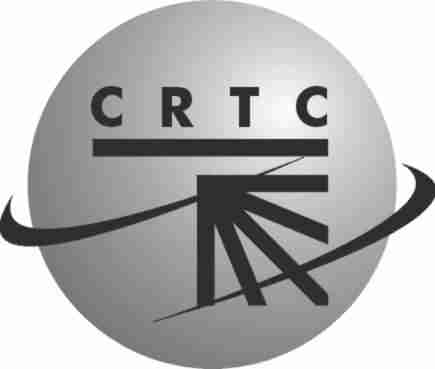 Filipinos looking for reasons why broadband providers want to limit their Internet usage can find all the explanations needed in the financial reports of companies enthusiastically supporting Internet Overcharging proposals.
Filipinos looking for reasons why broadband providers want to limit their Internet usage can find all the explanations needed in the financial reports of companies enthusiastically supporting Internet Overcharging proposals.
As ABS/CBN News noted, “To say that 2010 was a difficult year for the Philippine telecommunications industry is an understatement.”
“Consumers are demanding an unlimited telecommunications experience,” says Renato Razón, an investor and telecom industry watcher for more than 30 years. “The wireless sector and the growth of the Internet, and the companies that compete to provide both, have turned telecommunications in this country on its head.”
Razón tells Stop the Cap! the privatization of telecommunications initially showed a lot of promise for investment and development to get the country on the Asian economic fast track. But increasingly in recent years, companies have grown fat and lazy, trying to compete with existing networks in need of upgrades — in search of quick profits and no costly capital expenses.
“They learned what they think are important lessons from the huge amounts of money that were spent to build and upgrade wireless networks in the Philippines,” Razón tells us. “They were convinced it was worth countless billions to build wireless infrastructure and wait for the enormous profits that would come later, but then everyone wanted to get into the business and the big profits they thought they’d get never materialized.”
Razón says wireless competition that exploded across major cities in the Philippines was initially a boon to consumers, who today benefit from heavily marketed unlimited calling and texting plans at declining prices. But now that profits are taking a hit, investors and company executives learned what they feel is a bitter lesson.
As wireless becomes a mature market in the Philippines — with more than 80 percent of consumers already using wireless devices, almost all of the marketing from existing providers targets customers of their competitors. Customers threatening to switch force providers to offer steeply discounted retention deals that are often infinitely renewable.
Such fire sale pricing enrages investors, who are calling for greater industry consolidation among the three largest operators. With a fourth provider possibly on the horizon, the chorus demanding that some of the players get out of the market through mergers and acquisitions for the “good of all” could soon grow too loud to ignore.
 “Heavy competition is your worst nightmare — it results in price wars and everyone, except consumers of course, are hurt in the end,” he admits. “I admit I have to divorce myself from the fact my family and I are also consumers — and we love the lower prices — but as an investor, I understand the loud demands to improve shareholder value.”
“Heavy competition is your worst nightmare — it results in price wars and everyone, except consumers of course, are hurt in the end,” he admits. “I admit I have to divorce myself from the fact my family and I are also consumers — and we love the lower prices — but as an investor, I understand the loud demands to improve shareholder value.”
Razón says executive compensation, often tied to financial performance, delivers the ultimate incentive that executives answer first to shareholders, not customers.
“If a handful of customers get angry at you, that doesn’t cost you the company-paid vacation on the French Riviera and a healthy bonus — an angry compensation committee answering to a dispirited Board of Directors could,” Razón says.
Razón says it’s the same story wherever private companies control telecommunications with few regulations governing their operations. He believes private market solutions without regulatory oversight helps him more than it helps you.
“I understand what the Philippine government wants — regulations to promote better broadband, but they are only hearing from industry people on how to accomplish that,” Razón believes. “They answer to shareholders who think about short term results and the health of their investment, not the overall health of the broadband marketplace.”
With financial results for 2010 showing the impact of price competition and predictions of another year of anemic profits, providers are looking for new revenue streams. Broadband offers one of the few major growth opportunities available to telecom companies in the short term, Razón says.
“At least half this country doesn’t have meaningful broadband, so if you can deliver service over existing infrastructure, keeping capital costs low, you couldn’t count the money coming in fast enough,” Razón says. “DSL from the phone companies delivers it all — existing phone wires delivering a value-added service to existing phone customers. It’s not fast, but it’s cheap.”
Rafael Aguado, the chief operations officer of Bayan Telecommunications, agrees the real revenue is in broadband:
“2010 was a challenging year for the telcos, as competition intensified and the Internet/social media and new technologies influenced the shift on consumer behavior on how to communicate, putting pressure on traditional revenue sources like voice calls and international long distance calls. Data and internet subscribers continued to increase and is expected to accelerate to the next level of sustained growth. It was a difficult year for Bayan but performance was consistent with the industry trend. Total revenue decreased due to lower voice revenues but residential internet and corporate data services posted revenue growth. With sound operating expense management, we expect the year to end in double digit growth in EBITDA. Our growth drivers next year would continue to be data and internet services for both consumer and corporate sectors.”

Philippines Long Distance Telephone Co.
Razón believes usage caps are just another mechanism to protect companies from performing costly upgrades.
“If you can limit usage, you don’t have to spend as much capital upgrading,” Razón says. “Investors don’t mind if you spend to expand DSL into new territories, because the costs are relatively low. They will get upset if your support and ongoing costs increase, however.”
That could explain the growing burdens of wireless traffic on the country’s cellular networks. Some providers have been accused of deliberately overselling access to their networks while refusing to upgrade them to meet growing demands, because the return on “unlimited use” doesn’t deliver:
“The telco industry had a good year but its profitability was greatly reduced due to the highly competitive ‘unlimited plans’ that each provider offered its subscribers. This trend would continue this coming year,” said Ivan Uy, chairman, Commission on Information and Communications Technology (CICT). “What needs to be looked into is the deteriorating service availability or accessibility due to network congestion brought about by the unlimited plans. Customer dissatisfaction has been rising because of higher frequency of dropped calls, delayed SMS, and line unavailability.”
When given a choice how to solve this problem, most companies prefer to advocate for usage limits, not mass scale upgrades.
Even long distance companies, which played through a price war more than a decade ago, see the flow of investment heading into broadband. Unfortunately, in their eyes, usage demands are coming along as well:
“Competition intensified in the cellular business. Broadband grew strongly. Margins came under pressure even as demand for more network resources increased. For PLDT, 2010 has been a year when it maintained its market leadership in the face of these challenges. Our focus has been managing this transition where traditional revenue sources such as fixed toll revenues like IDD and NDD were on the decline while new revenue sources such as broadband were on the rise. We preserved margins by strengthening cost management given the modest top-line growth.
“We expect the challenges of 2010 to carry into next year. Demand for bucket and unlimited offers in the cellular space will continue. We expect that broadband will keep growing given the growing popularity of social networking and new access devices such as tablets and smartphones. PLDT will continue to invest in its network in order to fortify its market leadership.” — Napoleon Nazareno, president and CEO, Philippine Long Distance Telephone Co.
 For a long term investor like Razón who has seen this all before, there is a better answer: invest in your networks and grow them faster than your competitors.
For a long term investor like Razón who has seen this all before, there is a better answer: invest in your networks and grow them faster than your competitors.
“You have to spend money to earn money I have always found and there is a ton of money to be spent and made on broadband in this country,” Razón says. “The low hanging fruit has already been picked — now we must spend to get broadband into towns and villages and we should also be investing in content and products we can sell to broadband customers.”
Razón thinks Internet Overcharging schemes are a foolish mistake.
“You can’t create value-added services on an artificially limited network and expect consumers to buy,” Razón said. “If you limit usage, you discourage people from using the services that get them addicted to using it in the first place. Get them hooked, keep them happy and you have a customer for life.”


 Subscribe
Subscribe











